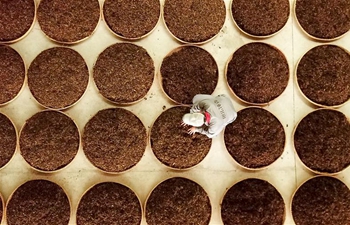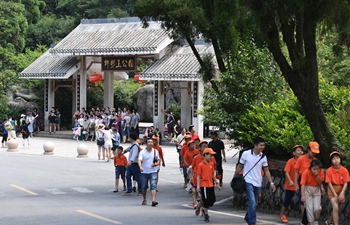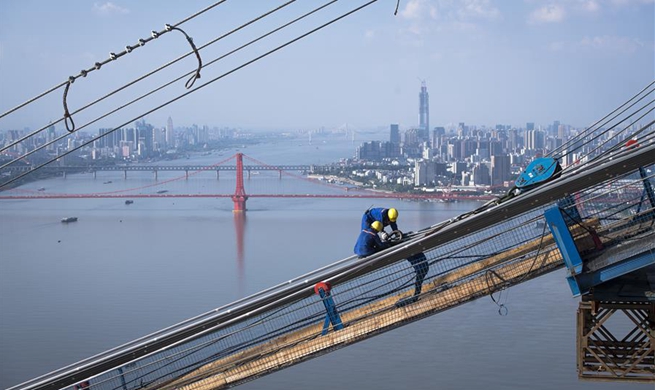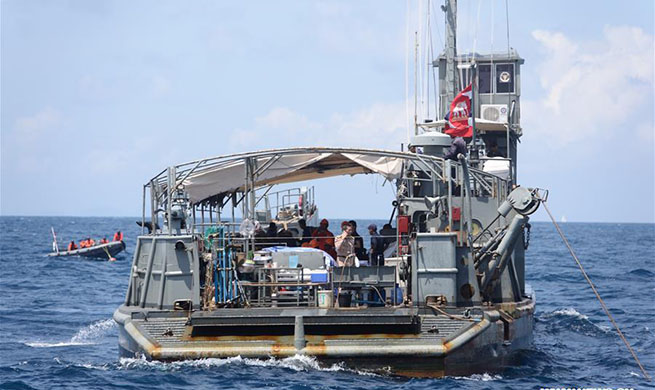HAIKOU, July 9 (Xinhua) -- Coconuts are famous in Hainan, an island province in south China, but it is the empty shells that have brought dozens of job opportunities to the disabled, the unemployed and the poor.
"We are transforming food waste into something valuable," said 50-year-old Fu Dongbo in his factory that processes coconut shells into kitchenware. "Hainan consumes over 2 billion coconuts each year. It would be a waste if we could not reuse them."
After years of experimenting, Fu's factory found a way to turn coconut shells into eating utensils ranging from spoons, bowls and chopsticks using a 42 step process.
"The shell of a coconut is a special material that is strong, environmentally friendly and renewable," said Fu while holding a spoon he made.
Fu said bowls and chopsticks are the best sellers and their biggest buyers are from distributers in Beijing, Shanghai and Hunan. This June, he received an order of 5,000 coconut bowls from Hong Kong.
"The demand has already outgrown supply," he said.
Fu lost his job in 2005 after an agricultural machinery factory where he worked closed down. As the sole bread winner of his family, he started to look into repurposing coconut shells, one of the most common things seen in his hometown, hoping to provide for his family as well as provide jobs for other unemployed islanders.
He innovated a set of kitchenware made of coconut shells and registered his trademark in 2012. In May 2015, a year after the factory was set up, his products gained popularity at the China international tourism commodities fair, as almost all his goods were sold on the first day of the event.
Fu said his factory's output value in the first half of 2018 reached 3.5 million yuan (530,000 U.S. dollars), the same as that of the whole year in 2017.
"I am most grateful to my workers for our performance," Fu said.
Among the 42 factory workers, 25 are physically challenged, while others used to struggle financially. Now, his workers earn between 1,500 yuan and 3,000 yuan a month.
"I wanted to help other unemployed people like me when I started my business," said Fu. "That's why I considered hiring them and other disadvantaged workers first."
The physically challenged are often considered a burden to their families and it requires more time and effort to train them. However, he still believes that after systematic training, their ability to work will be the same as any other worker.
Fu Yongchuan, 36, was promoted as the manager of the coconut kitchenware factory last year. He has poliomyelitis, a disease that can cause muscle weakness, and was diagnosed as disabled. He spent a long time searching for jobs, but no one wanted to give him a chance.
After he mastered all 42 processes to turn the coconut shells into utensils, he now earns around 4,000 yuan per month at the factory.
"Without this job, I would still rely on my parents to help me," the manager said. "Now, I can pay for my own stuff and contribute to the housekeeping."
As the employer and factory owner, Fu said he shoulders a lot of responsibility. "My humble wish is to expand this business, so more people can benefit," he said.

















